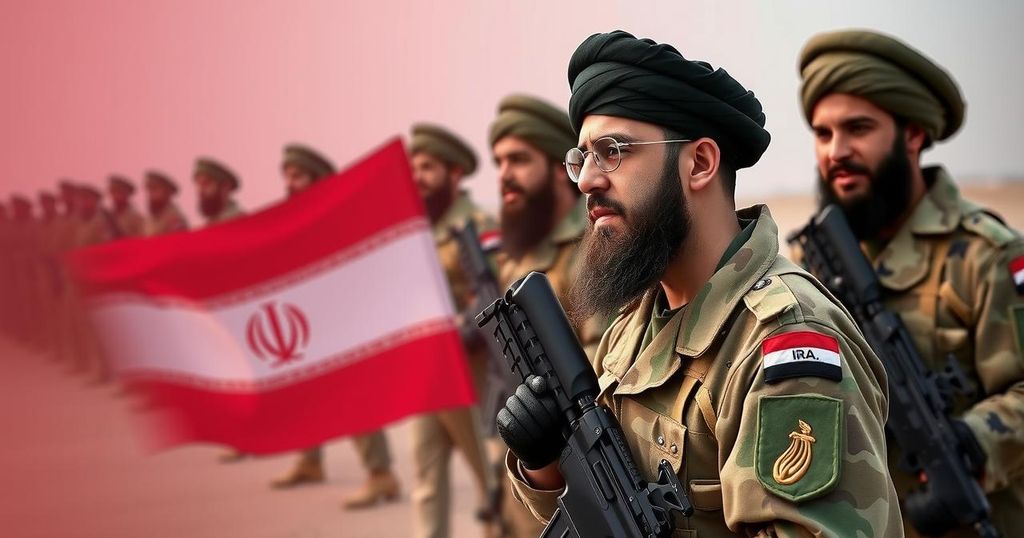The PMU’s commitment to Iran was reaffirmed by Faleh Al-Fayyad, amidst changing dynamics as Iraqi militias shift focus from Israel to Syria. With new Syrian leadership, Iranian-backed groups are assessing their strategies, while Iraqi political factions react to these developments.
Recent statements from Faleh Al-Fayyad, the head of Iraq’s Popular Mobilization Units (PMU), emphasized the group’s unwavering allegiance to Iran, particularly in light of the changing political climate in the region. During a commemorative meeting in Diyala province, Al-Fayyad reiterated the PMU’s loyalty to their Iranian counterparts and honored the memory of General Qassem Soleimani, who was pivotal in combating ISIS but was assassinated by a U.S. drone strike in January 2020. This allegiance comes as militias in Iraq are pivoting away from targeting Israel and are increasingly concerned with developments in Syria, especially following the appointment of new leadership by Ahmed al-Sharaa. Iraqi political dynamics also reflect these shifts, as Sunni leaders and Kurdish factions observe the potential for increased unity and influence amidst the evolving geopolitical landscape. Hadi al-Amiri from the Badr Organization remarked on Iraq’s resilience in light of Syrian changes, highlighting concerns that those changes may impact Iraq’s stability and governance.
The Popular Mobilization Units (PMU) are an amalgamation of various militias in Iraq, officially recognized by the Iraqi government following the emergence of ISIS in 2014. These groups, many of which are Iran-backed, played a crucial role in defeating ISIS and are intricately linked to Iran’s regional ambitions. The geopolitical interactions between Iraq and Syria are particularly pivotal as the political situation in Syria shifts under new leadership, prompting regional stakeholders, including Iraqi Sunni and Kurdish leaders, to reassess their strategies and alliances in response to these transformations.
The statements made by Faleh Al-Fayyad affirm the enduring ties between Iraqi militias and Iran amidst a shifting geopolitical landscape. Alongside concerns over interventions from Syria’s new leadership, Iraqi factions are poised to navigate the implications of these changes, with Sunni and Kurdish leaders anticipating potential political shifts that may alter power dynamics in the nation. Consequently, the focus on Iran’s influence remains significant as the region evolves.
Original Source: www.jpost.com






